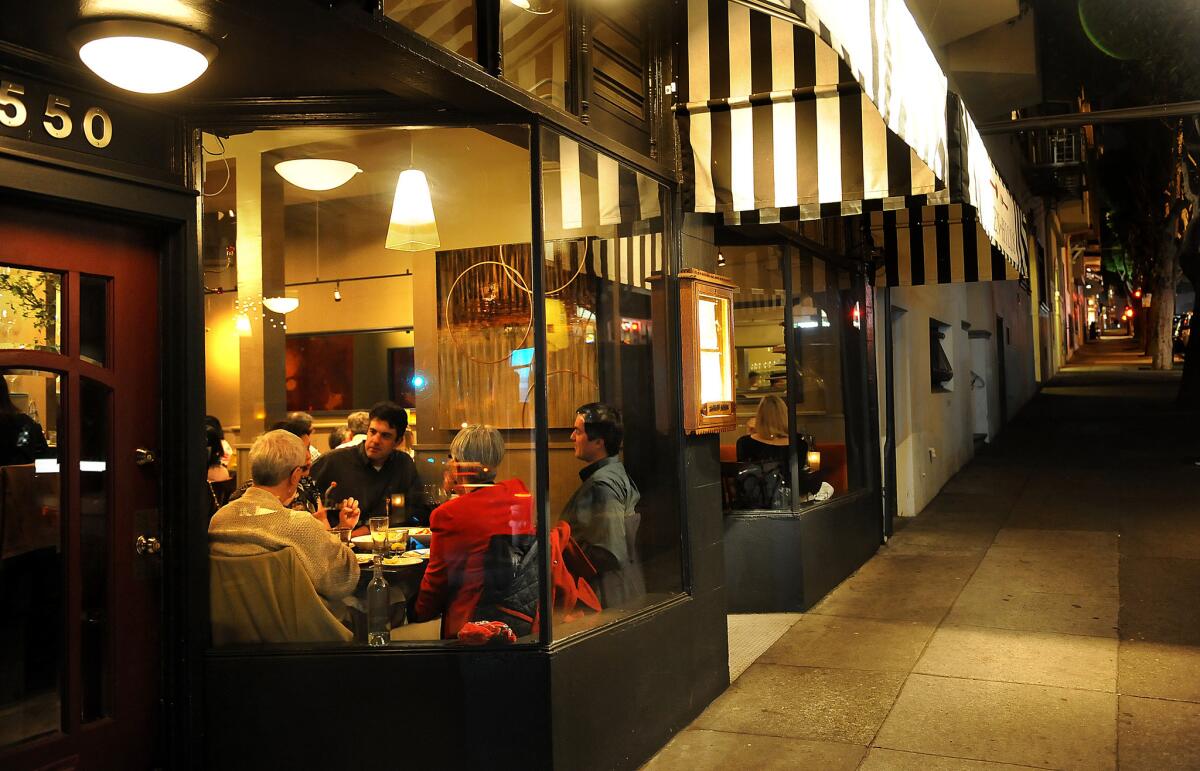Controversial website puts a price on table reservations

- Share via
After waiting half an hour for a restaurant burrito, San Francisco entrepreneur Brian Mayer came up with the idea for ReservationHop.com — a website that allows buyers to purchase reservations for tables at popular restaurants, reserved far ahead of time under false names.
He had no idea the debate it would soon spark. Hours after the launching the site earlier this month, he met a torrent of negative feedback online. On Twitter, Reservation Hop became associated with the new trend #JerkTech. Mayer stopped providing the service last week.
“Reservation Hop is a prime example of what’s wrong with tech. We should be creating value, not stealing it...#JerkTech”--@kevnshin, July 3.
“This is irresponsible and sleazy and exactly what people hate about startups sucking the life out of San Francisco reservationhop.com”--@mat, July 3.
“These apps are essentially tools for scalping a public good or open resource: Stop The JerkTech...”--@kabbenbock, July 6.
Most critics see Reservation Hop as inventing an unnecessary market, saying it disadvantages the poor, deals in shady terms with false names and may hurt restaurant table-filling in the long run.
“It seems to be one of this new generation of apps that is riling people in San Francisco because they are getting in between the service and the customer and taking their own cut,” said Andrew Leonard of Salon, who wrote on the issue.
“Maybe we are heading towards a society where everything has a price point,” he added. “Then it would be harder for people with less money to get services since there will always be ways to out-bid them, and it would also lead to the reduction of human relations to pure market relationships.”
In response to the criticism, Mayer came to his own defense on his blog, writing, “I think that a paid reservation lets customers get skin in the game, and that means that restaurants might even reduce no-shows if paid reservations become a thing.”
In an interview with CNET published Monday, he admitted that it was a mistake to assume restaurants would not mind the site reserving spots at restaurants under fake names. After talking with restaurant owners about issues like avoiding customers who do not eat for a long time or order much, Mayer said that he is considering a “pivot” in the business model. The change, mentioned on his blog, may allow restaurants to sell their reservations and get a cut of the profits from the site.
Already some restaurants are trying variations on this. Notably, Los Angeles hotspot Trois Mec sells tickets to its highly coveted meals that effectively pre-pay for dinner.
“Society changes its views over time in regard to what’s considered taboo to engage in commerce over,” Mayer told CNET. “We shouldn’t let our attitudes about what is or isn’t considered taboo to decide what markets we create, as long as the markets involve mutually consensual transactions.”
Although most reactions to Reservation Hop’s initial launch were negative, others continue to support the idea behind the website, saying it would be a good way to make the reservation process more efficient. They also argue that it would leave the poor unaffected, since many of them do not dine at high-demand restaurants anyway.
Matthew Feeney of the Cato Institute gave the example of someone needing a restaurant reservation for a special occasion, such as proposing to his or her fiance. He said paying a price would reflect that greater need.
“I think this is a bit of an overreaction,” said Feeney. “This is going to be a good way of making sure people who want reservations the most get them.”
Reservations on the site, before the service was stopped, sold for about $12. At the time this post was published, Reservation Hop was still out of service.
Follow me @DashYoungSaver
More to Read
Eat your way across L.A.
Get our weekly Tasting Notes newsletter for reviews, news and more.
You may occasionally receive promotional content from the Los Angeles Times.










